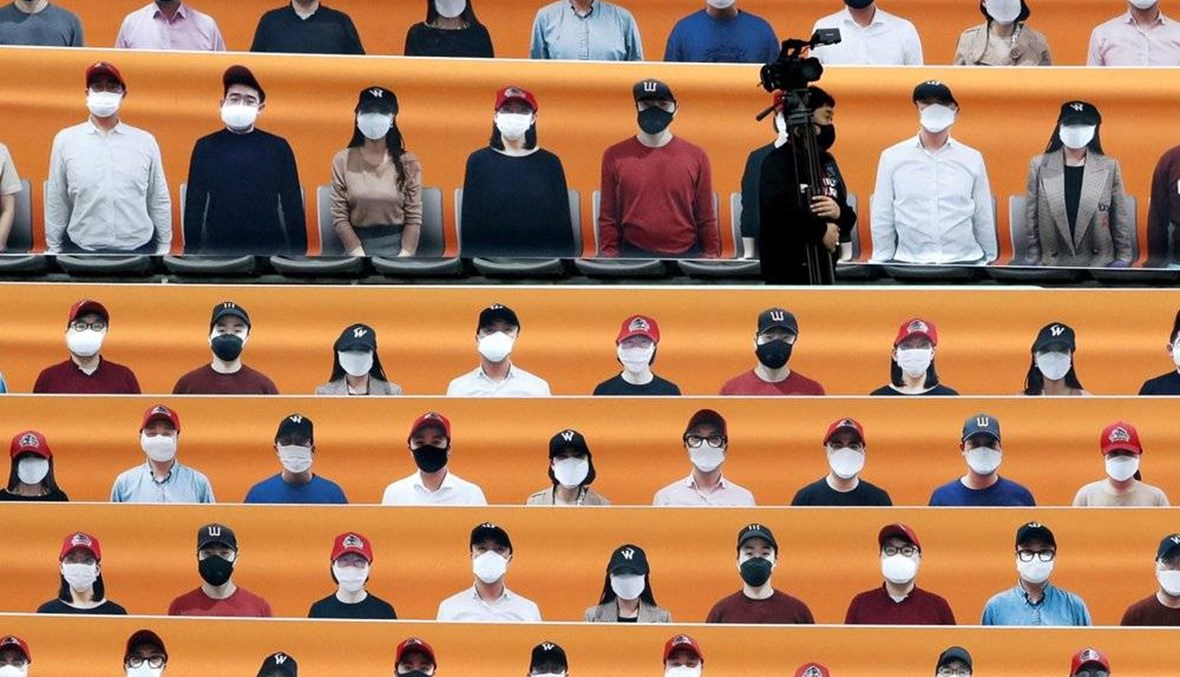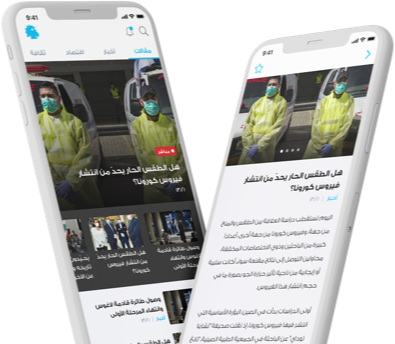How a virus changed the world’s media habits
People are turning to media more than ever while navigating the Covid-19 pandemic
BEIRUT: Undeniably, the pandemic caused by the coronavirus, has had a tremendous impact on people’s lives, habits and routines. In particular, the emphasis on social distancing and staying home during this challenging period of history has significantly impacted the way people use media platforms around the globe.
As people are staying home during this challenging time, the past few months have seen major changes in the role of social media and online content. Social media platforms are increasingly being used to promote creativity, support mental health and strengthen communities around the world. Business brands, creators, musicians, performers and celebrities are harnessing social media’s live platforms more than ever to communicate on a more personal level with their audience.
All kinds of workshops, courses and musical performances are being held live on social media, for education and entertainment purposes, aiming to contribute positively to people’s mindset and thus help them cope better during this tough period. As multiple users can join a livestream, this tool is effective in its ability to facilitate meaningful, real-time interaction and put together multiple communities.
Mobile usage
People are now spending more time with mobile apps and exploring new ways of using their phones. A recent report revealed that the daily time spent in apps on Android devices increased 20 percent, while consumer spending in both iOS and Android apps was also up 15 percent and 5 percent respectively.
Mobile apps are being used for different purposes such as staying productive, studying, exercising, shopping, hosting a party and keeping entertained. According to the global web index, people around the world are now more likely to invest in new subscription services such as Netflix to stay entertained.
TV consumption
Self-isolation restrictions have also significantly impacted TV viewership. According to the global web index, TV and online videos (YouTube, Tiktok) are the primary mediums used across all generations and genders in the US and the UK.
The latest Ipsos statistics in Lebanon have revealed that Linear TV has gained its momentum back in the quarantine period, with an increase in the number of viewers. Around 132,000 new individuals have started watching TV since the quarantine started, mostly by the young generation aged between 15 and 25.
Since second week of March, shortly after the pandemic hit Lebanon, Lebanese TV showed a 21 percent increase in the average time spent watching TV in the country, mainly from males and people aged between 25 and 45. Series and political news have been the most-consumed genres since the lockdown started.
Unsurprisingly, people are thirsty for pandemic-related information as they are trying to understand the chaos and the complex situation they find themselves in. According to the Global Web Index, 68 percent of consumers are seeking out pandemic updates online over any other activity.
Globally, consumers consider the World Health Organization (WHO) as the most-trusted source for any information related to Covid-19. Yet, this isn’t the case everywhere. For instance, while U.S. consumers trust the WHO the most, UK consumers perceive their government as their most-trusted news source overall.
In Lebanon, the WHO and scientists are seen as the most reliable source of information on Covid-19. But while Lebanese consumers believe the WHO is performing its job, there is some skepticism towards the government and local authorities’ performance during the crisis.
As the collective attention is turned to Covid-19 updates, the proliferation of pandemic-related fake news is spreading faster worldwide, which only worsens the situation and adds to social disorder and division. Although governments, social media platforms and credible sources have stepped up their efforts to fight fake news, it is still a concern internationally.
Even so, people are turning to various media sources more than ever to seek information and entertainment. But with the current pandemic-related media content a fusion of positivity and negativity interspersed with false information, people have to tread carefully as what they choose to consume will have a strong influence on their psychological well-being and mindsets while navigating this crisis.
---
Nada Richa is a graduate of NDU University with a Master's Degree in Media Studies, where she presented a thesis entitled “The Impact of Online Activism against Domestic Violence in Lebanon on Women’s Empowerment and Social Change.” Richa is also a researcher in the Lebanese Center of Strategic Studies CLES


 اشترِك في نشرتنا الإخبارية
اشترِك في نشرتنا الإخبارية











